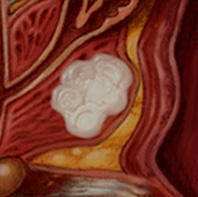 Researchers in Germany performed a systematic review of the evidence. Continue reading Status of hypnosis/guided imagery for fibromyalgia
Researchers in Germany performed a systematic review of the evidence. Continue reading Status of hypnosis/guided imagery for fibromyalgia
Category Archives: Guided Imagery
CAM in the US: Patterns of use
 I’ve largely ignored these studies in the past, but perhaps it’s worth a second look.
I’ve largely ignored these studies in the past, but perhaps it’s worth a second look.
To start, this 1993 study by Dr. David Eisenberg, who is now the director of Complementary and Integrative Medical Therapies at Harvard University, is considered a landmark in the field of “unconventional medicine.” Continue reading CAM in the US: Patterns of use
CAM for children undergoing stem cell transplants
 Researchers in the US and Canada evaluated massage, humor therapy, and relaxation/imagery for reducing distress associated with pediatric stem cell transplantation. Continue reading CAM for children undergoing stem cell transplants
Researchers in the US and Canada evaluated massage, humor therapy, and relaxation/imagery for reducing distress associated with pediatric stem cell transplantation. Continue reading CAM for children undergoing stem cell transplants
Complementary therapies for patients with leukemia
 The Integrative Medicine Service, at Memorial Sloan-Kettering Cancer Center, in New York City offers their perspective. Continue reading Complementary therapies for patients with leukemia
The Integrative Medicine Service, at Memorial Sloan-Kettering Cancer Center, in New York City offers their perspective. Continue reading Complementary therapies for patients with leukemia
Beneficial response to yoga in reducing hypertension
 Researchers reported during the annual meeting of the American Association of Naturopathic Physicians that “mind-body interventions may be prudent choices for adjunctive treatment for motivated patients.” Continue reading Beneficial response to yoga in reducing hypertension
Researchers reported during the annual meeting of the American Association of Naturopathic Physicians that “mind-body interventions may be prudent choices for adjunctive treatment for motivated patients.” Continue reading Beneficial response to yoga in reducing hypertension
Hypnotherapy to treat rheumatoid arthritis
 Â Mental imagery and hypnotherapy helped alleviate pain in this study (page 55) by researchers at Bangor University in the UK presented during The British Psychological Society’s Division of Health Psychology Annual Conference. Continue reading Hypnotherapy to treat rheumatoid arthritis
 Mental imagery and hypnotherapy helped alleviate pain in this study (page 55) by researchers at Bangor University in the UK presented during The British Psychological Society’s Division of Health Psychology Annual Conference. Continue reading Hypnotherapy to treat rheumatoid arthritis
CAM preferences among children with chronic pain
 You won’t be surprised to learn that pain of longer duration and greater impairment make children more willing to use CAM.
You won’t be surprised to learn that pain of longer duration and greater impairment make children more willing to use CAM.
But which CAM options do they choose? Continue reading CAM preferences among children with chronic pain
Using guided imagery to treat recurrent stomach pain in kids
 I was surprised to read it, but “one of the more common chronic pain syndromes in children is recurrent abdominal pain (RAP) — thought to affect 10% to 30% of all school-aged children.”
I was surprised to read it, but “one of the more common chronic pain syndromes in children is recurrent abdominal pain (RAP) — thought to affect 10% to 30% of all school-aged children.”
The results of this study show that “the response to guided imagery in.. children with RAP was rapid, sustained, clinically effective, and not associated with any apparent side effects.”
Let’s learn more.
Continue reading Using guided imagery to treat recurrent stomach pain in kids
Stress-management for radical prostatectomy patients

Mind-body interventions for chronic pain in older adults
 Not much evidence is available. But here’s what 2 researchers from the University of Pittsburgh in Pennsylvania discovered during their review of 20 published studies. Continue reading Mind-body interventions for chronic pain in older adults
Not much evidence is available. But here’s what 2 researchers from the University of Pittsburgh in Pennsylvania discovered during their review of 20 published studies. Continue reading Mind-body interventions for chronic pain in older adults
Integrating CAM into traditional cancer treatments in Chicago
 The Cancer Integrative Medicine Program at Rush University Medical Center focuses on dealing with the emotional, psychological, and spiritual effects of cancer. Continue reading Integrating CAM into traditional cancer treatments in Chicago
The Cancer Integrative Medicine Program at Rush University Medical Center focuses on dealing with the emotional, psychological, and spiritual effects of cancer. Continue reading Integrating CAM into traditional cancer treatments in Chicago
Evaluating CAM to treat nausea and vomiting in cancer patients
![]() The Oncology Nursing Society has posted a table that summarizes CAM studies on the treatment of nausea and vomiting in cancer patients. The studies were published between 1988 and 2005.
The Oncology Nursing Society has posted a table that summarizes CAM studies on the treatment of nausea and vomiting in cancer patients. The studies were published between 1988 and 2005.
Here’s a summary of their findings.
Continue reading Evaluating CAM to treat nausea and vomiting in cancer patients
Complementary treatments for rumination
 Rumination is the voluntary or involuntary regurgitation and rechewing of partially digested food that is either reswallowed or expelled.
Rumination is the voluntary or involuntary regurgitation and rechewing of partially digested food that is either reswallowed or expelled.
Interestingly, in addition to diet, exercise, and possibly surgery, all treatments are complementary.
Continue reading Complementary treatments for rumination
 Advocates of imagery
Advocates of imagery